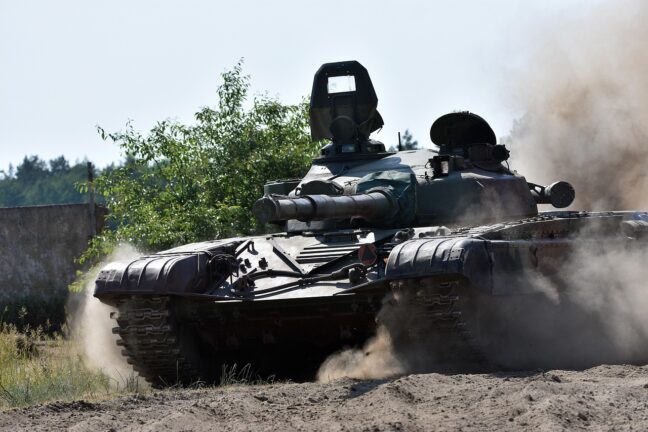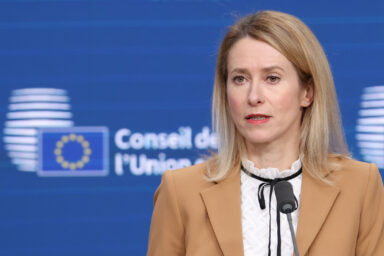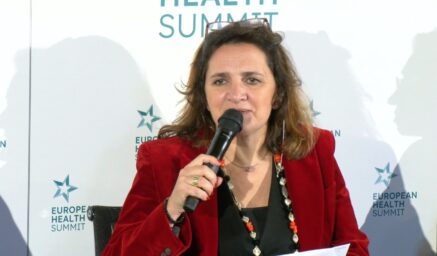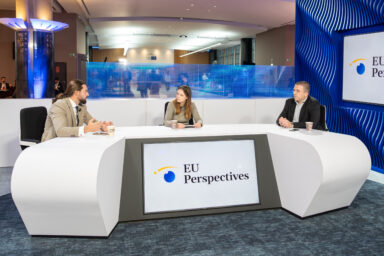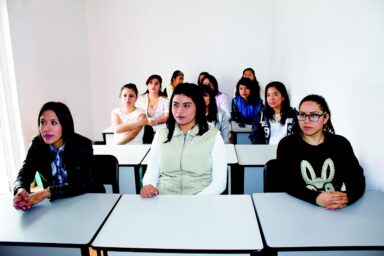The EU risks entrenching ineffective defence systems by pouring funds into fragmented initiatives without centralised control, warns Nick Witney of the European Council on Foreign Relations. Local political pressures, he argues, could squander new budgets on disjointed projects rather than meaningful reform.
As the war in Ukraine continues to reshape Europe’s geopolitical priorities, EU member states and NATO countries are embarking on an unprecedented surge in defence spending. Governments across the continent are injecting billions into their military budgets, driven by a renewed sense of urgency, insecurity, and political pressure. But according to a leading European defence expert, this wave of rearmament may end up undermining the very security it aims to protect.
A most prominent voice raising this concern belongs to Nick Witney, senior policy fellow at the European Council on Foreign Relations (ECFR) and former head of the European Defence Agency. In a recent article titled “Too much, too fast: Europe’s defence spending tsunami is coming”, he warns that the EU’s military spending boom is happening in a dangerously uncoordinated and hasty fashion.
Boosting Putin’s stooges
“European countries are spending too much, too fast,” writes Mr Witney. “The risk is that funds will be diverted into familiar, nationally-driven defence projects, shaped more by domestic politics than strategic need.”
Mr Witney expanded on this critique in an interview with EU Perspectives, outlining both the political and structural risks tied to this rearmament push. “If European countries raise taxes or cut public services to pay for defence, this could further boost far-right parties – many of which are apologists for Putin, if not outright Trojan horses,” he warned.
You might be interested
But the risk is structural as well as political. According to Mr Witney, pouring more money into national defence budgets may actually discourage the deeper transformation Europe’s security posture requires. “The war in Ukraine has shown that the way Europeans do defence – from frontline to factory – must change. But when there’s more money available, the appetite for real reform tends to fade.”
The Commission needs more power
At the heart of the EU’s response is the ReArm initiative – a financing plan designed to accelerate the production of military equipment through joint projects. Loans will only be made available for collaborative programmes involving at least two member states, and at least two-thirds of the funds must go to European products and components. Readiness 2030, the accompanying white paper also identifies critical capability gaps exposed by the war, such as air and missile defence, and outlines how funds should be directed.
In theory, it’s a promising framework. But Witney highlights a crucial flaw: the European Commission lacks the authority to enforce these conditions. “Member states are reluctant to let Brussels dictate their defence choices. And since everyone agrees we need a crash rearmament programme, time pressure and political resistance will likely force the Commission to back down and approve loans for the same old, outdated national projects.”
More money doesn’t automatically mean more security. — Nick Witney, Senior Policy Fellow at the European Council on Foreign Relations
This undermines the EU’s stated goal of greater defence industrial integration. Rather than investing in interoperable systems, common platforms, and cross-border production, many governments are opting to support domestic industry and legacy procurement programmes. The result is a defence landscape that remains fragmented and inefficient – precisely the weaknesses Russia has long exploited.
Money, for once, is not relevant
“More money doesn’t automatically mean more security,” Mr Witney cautions. “In fact, it could lessen the political will to rethink how Europe produces and deploys its military power.” Meanwhile, Ukraine continues to serve as powerful, if painful, case study in strategic adaptation. Fast procurement cycles, close coordination between industry and armed forces, and constant battlefield innovation are its principal features. Europe is watching closely, but struggles to replicate this model – not due to lack of resources, but because of a persistent absence of unified political will.
The lesson is clear: without a strategic compass and meaningful cooperation, Europe’s defence spending boom may do little to enhance its collective security. To the contrary, it could exacerbate internal vulnerabilities. A successful rearmament programme requires not just money, but direction, discipline, and real political leadership.
